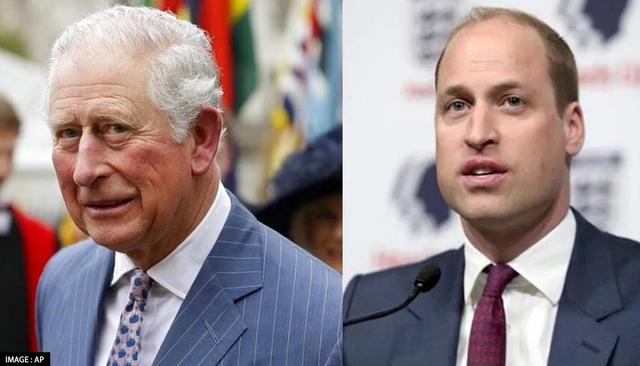Why experts believe William would be more suitable for UK throne than father King Charles?
Experts opined that Prince William, Duke of Cambridge, and the elder son of Charles and Diana, would be more suitable for the position than his father.

Prince Charles, 73, who served and dedicated his life to his “beloved mother”, Queen Elizabeth II until she left for her heavenly abode, became the successor immediately on Thursday. Though he has been conferred with the title of King Charles III, he assisted his mother in her official duties ever since she reported mobility issues. However, experts opined, that Prince William, Duke of Cambridge, the elder son of Charles and his former wife Diana, would be more suitable for the position. Prince, a grandson of Queen Elizabeth II, who is now second in the line of succession to the British throne after his father, is believed to be more relaxed, less formal, more tactile and more media-savvy than his father.
Sharing their opinion with The Guardian, several top correspondents who have covered Royal Family for ages and observed every member minutely, opined Prince William has better connecting potential, especially with the younger generation and would carry out his duties more responsible manner than his father. The correspondents dubbed William as a more financially responsible person and claimed his approach to dealing with any untoward situation is way better than the 73-year-old new monarch.
“There have been quite a lot of question marks over the way Charles’s charities operate and where the money comes from. I think William is less likely to go along easily with people saying, ‘oh, everything’s all right, sir, no, leave it with me, that will be fine,” said Nicholas Owen, a former ITN royal correspondent to the UK-based publication.
“I think he’s more likely to ask questions about people. ‘Why are we offering them an honour? What have they given us?’ I think that will be his style,” he added.
Prince William is more neutral than his father
Meanwhile, Charles Rae, a former royal correspondent for the Sun and author of The Queen Mum: Her First 100 Years, noted William is also likely to be less standoffish than his predecessor. “There’s going to be a lot more friendly handshakes and possibly hugs, rather than the formality that we’ve seen in the past,” he ascertained. Katie Nicholl, a royal correspondent for Vanity Fair and author of Her Majesty The Queen: The Official Platinum Jubilee Pageant Commemorative Album, believes William is more politically “neutral” and “conscious” than his father and may invite fewer controversies.
Prince Charles has a long history of creating controversies
It is worth mentioning Charles remained in major controversies due to several reasons, including his lifestyle and charity organisation. Earlier in July, a media report claimed that the eldest son of Queen Elizabeth II had accepted funding from Osama Bin Laden’s family members around a decade ago. According to a report by The Sunday Times, the 73-year-old Prince received a whopping £1m donation for his charity from Bakr bin Laden, the patriarch of the Saudi family, and his brother Shafiq in 2013. The media report alleged Charles agreed to receive the amount despite resistance exhibited from his advisors at Clarence House — the prince’s London residence, and at the Prince of Wales Charitable Fund.
What’s next for Prince Charles?
According to historian Ed Owens, Prince is a “shy boy” with a domineering father, considered a wise and brave man unlike his mother, who refused to discuss her views publicly. On several occasions, he delivered speeches and wrote articles on sensitive topics such as climate change, green energy and alternative medicine. But now, the historian believes he has to prove his majesty and wisdom as he would be a matter of highlight all the time. Still, Owens said it is to be watched will Charles be as loved by his subjects? It’s a question that has overshadowed his entire life, he said. Charles must figure out how to generate the “public support, a sense of endearment” that characterized the relationship Elizabeth had with the British public, Owens said.



